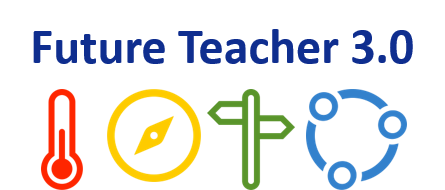Xerte, Apereo Incubation and the Jisc Invitation for project submissions for Interactive Learning Resources

Why this image? Well firstly it was sourced via Xpert – another Xerte related tool. Also this post is partly about the news regarding Xerte entering Apereo Incubation but also my inherent message is about use of different authoring tools , some saying they prefer other tools and missing the point, you don’t need to and rarely can put all your eggs in one basket! 😉
Julian Tenney from University of Nottingham posted the news at the foot of this post about Xerte beginning the Apereo Incubation process to the Xerte mailing lists yesterday (22nd Sept) and it seemed appropriate to post and add to that news here too for a few reasons…
- For those using Xerte please regard this as very good news! Myself and other members of the small but dedicated Xerte developer community have been and will be directly part of these developments and will ensure that the tools remain free and open source and more importantly continue to focus on core values like enabling teachers and learners to create and share interactive and accessible materials easily, efficiently and collaboratively. Even at this very beginning of incubation there are signs that this will result in an increase in those contributing to development of the tools.
- There have also been some very exciting on-going improvements and additions which we have been working on over the summer – some of which were demonstrated at the Xerte AGM in Belgium in June this year and will form part of a new release by the end of the year if not sooner. For an example I showed the new wysiwyg editor to a few people at the Jisc RSC-Eastern efair in the summer and recorded some reactions. More background and one of the video clips in this LO https://mitchellmedia.co.uk/xot/play_134
- I notice the news from Jisc re the Invitation for project submissions for Interactive Learning Resources. I know there are sometimes political or policy barriers for sector organisations to be seen to be directly promoting particular tools but as I’m self-employed these days I have no such barrier – it seems to me planning to use Xerte as part of these projects would be a perfect match! The ability to easily share for both consumption and repurposing, the collaborative features built-in and the unparalleled accessibility make Xerte an obvious choice even if you then use other tools with it too. Indeed you undoubtedly will use multiple tools whatever core tool you choose.
- Also amongst all the positive examples and comments about Xerte there are sometimes quite negative comments about limitations etc particularly aesthetics and comparisons to other tools. So here’s the reason I mention all this: I use a wide range of other tools regularly too but that misses the point. More specialised tools (often costly) can be used together with Xerte so the specialists or those who have the budget and time to learn and use the more complex tools can use those tools and other staff (and students – indeed ALL staff and students) can use Xerte and benefit from being able to quickly create interactive content themselves, add the additional material or assets created by the specialists and benefit from the multi-platform highly accessible content Xerte facilitates. Here’s a link shared by Terry McAndrew from the HEAcademy to where the £40k of Digital Literacy in the Disciplines projects (using Xerte) were uploaded. This is a resource wiki so comments and ideas can be posted in the ‘discussion tab’ if you wish to do so. See http://dlind.referata.com/wiki/Digital_Literacy_in_the_Disciplines for the outputs and outcomes. Also for those who haven’t seen these resources a link to examples of use of Articulate Storyline and Xerte together at http://learningmathsonline.ac.uk
- For those who comment negatively on the look of Xerte output I’d make the following comments:
Firstly we’ve long had HTML 5 functionality now so anyone with the time and skills can make Xerte content look very different both in terms of the interface and the actual content. I’ve done many customisations and have working examples of different themes that can be applies to a Xerte install or individual LO’s. This is similar to applying themes to something like Moodle where it can be made to look very different according to requirements. Secondly and more importantly…If you see examples created with any authoring tool that you regard as not engaging either aesthetically or pedagogically a simple fact applies – those involved in developing those materials have not put in the effort required to make that material engaging – it’s rarely the fault of the tool!
Indeed the ease of use with Xerte often exposes that very lack of imagination, creatively and good learning design because there’s no longer a time or technical excuse for those involved! Actually that sounds harsh – what it really reflects is that it takes time and effort to learn how to develop effective learning content and that’s far more to do with appropriate pedagogy than the technicalities and an easy to use tool leads to greater focus on the intricacies of good learning design. I’ve delivered many Xerte training sessions over the years and it’s true to say that in the early days of the tool and what you might call e-learning maturity the main focus had to be on the technical skills. In more recent years and months that takes up far less of the time and there is much more focus and benefit from a focus on effective learning design.
Suffice to say if you are looking to improve your use of Xerte or planning to submit a bid for the Jisc funding I’d be happy to help!
I hope this is useful additional comment to the news below.
Ron
Mailing list post by Julian Tenney:
Dear All,
I am really excited to be able to announce that The Xerte Project has been accepted as an incubating project at The Apereo Foundation (https://www.apereo.org/). This is a fantastic opportunity for the project – as you know, The University of Nottingham has led the developments over the years. Over the last few years, with increasing contributions from a growing community of developers it is fair to say that Nottingham’s contribution is now a much smaller percentage of the total than it once was. This reflects the growing volume of work, rather than a dwindling commitment on our part, and we remain dedicated to the project as an important platform for innovation, and for the creation and delivery of high quality content to learners here at the University.
As the project has grown, we have turned to questions around its sustainability. We have spent a lot of time over the last eighteen months or so exploring various options: we know that sustainability is a key issue for those looking to adopt the technology in other organisations and we understand that the current situation raises some questions for potential adopters: there is a sense that the project has a single point of failure. As priorities have changed here at the University, and the shape of my team has changed over the years, we do have fewer resources to put into the project than we used to have. We also appreciate that the current situation makes it hard for the project to achieve its full potential. As the only open source tool in its class it really deserves to increase its reach into new sectors and to find ways to generate and use revenue. Also, as the developer community has grown, it is increasingly important to ensure that the project continues to develop within a rigorous framework.
Over the last 18 months we have carefully explored all the options available to us, and we have chosen Apereo for its solid presence in educational technology and its excellent cultural fit with The Xerte Project. I’m really excited about this opportunity, and I’m really looking forward to working with Apereo through the incubation process.
My thanks go to all our users, contributors and developers, without whom the project could not have reached this significant milestone.
Julian
There is some further information from Apereo here:







